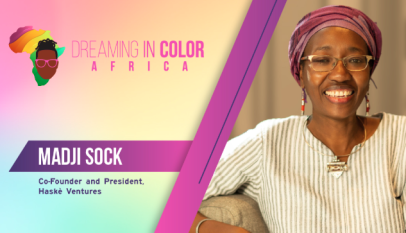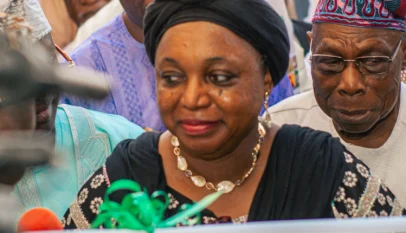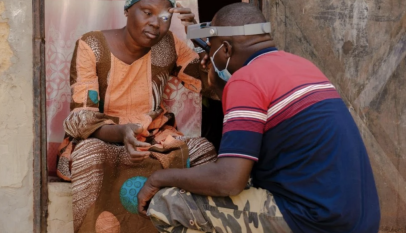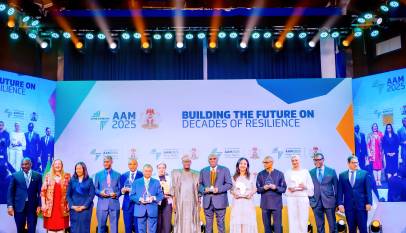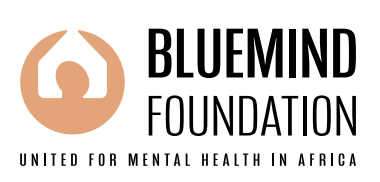BLOG | Let’s create the Africa of our dreams, for the sake of our unborn children
In commemoration of the 2023 Day of the African Child, Yavi Madurai blogs about the need for African leaders to create a prosperous Africa for the continent’s unborn children by removing barriers to free movement and boosting intra-African trade.
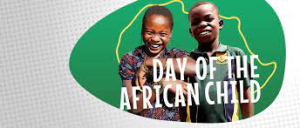
“I don’t have the straight nose that Somalis do. I have a big nose. My hair is nappy. My hair is not curly,” says Omar Ahmed Shongole Suber, a 25-year-old legal permanent resident of the United States of Somali origin who was deported in 2018 to a country in which he had never stepped foot, Somalia.
Suber’s family arrived in the US from Dadaab, Africa’s biggest refugee camp in northern Kenya, and settled down in Salt Lake City, Utah, where they became legal permanent residents. They had left their native Somalia decades earlier to escape the country’s endless civil war and persecution, being a marginalized minority in a country with a deep-rooted clan system.
Suber doesn’t remember anything about his formative years at Dadaab, just as his birth was never properly documented. So, on his arrival in Somalia without any documents linking him to the country, immigration officials did not know what to do with him. “When I got off the plane, the officer was like, we don’t even see your name here. Who are you?… “We don’t want you in our country. We really don’t. We don’t know who you are.'”
After being held for 2 hours, Suber was allowed entry to a country he did not know and was kidnapped almost immediately. By who? Why? He still does not know. But it was an experience he will never forget. “That’s something I cannot forget. I still have a cut from the beatings I got from there under my left eye,” Suber told The World. “The kidnappers gave us phones to call [our families] for ransom.”
Unbelievably, Suber told his family in the US not to bother sending the requested ransom. “I was just telling my parents ‘Goodbye.’” Ironically, he managed to escape from his kidnappers in the middle of a dark night and, with the help of his family in the US, fled to Kenya, where he still lives – unable to return to the only home he has ever known and probably never going to see his family again.
The Somali Bantu deportees live undocumented in Kenya – without citizenship, legal residence, or access to humanitarian aid. Their only alternative are the refugee camps, which still exist. “I’ve been staying inside [indoors] a lot,” said Suber, who now lives in Kenya’s capital, Nairobi. “I don’t want to get stopped outside and be deported back to Somalia.”
Bantu is a general term for over 400 different ethnic groups of black African peoples from southern, central, and eastern Africa who share a common language family and customs. The persecuted Somali Bantus are descendants of enslaved peoples of various Bantu ethnic groups from Southeast Africa, particularly from Mozambique, Malawi, and Tanzania; hence, they have a very distinct cultural difference and do not share ancestral ties with the ethnic Somalis, who are of Cushitic background.
Somali Bantu in America
The Somali civil war, which started in the early 1990s and is still raging more than 30 years later, has claimed the lives of hundreds of thousands, including women and children, while many of those who managed to survive it were victims of rape and other war-related atrocities, including being dispossessed of their ancestral lands.
Thus, many Somali Bantus fled to refugee camps in Kenya, where they languished for almost a decade before some of them were sent to start new lives in the US in the early 2000s. Most Somali Bantu deportees in Somalia live in perpetual fear of a second deportation, as research shows 55% of Somali Bantu deportees have been physically tortured at least once, whether by police, criminal gangs or the terrorist group al-Shabaab.
This is because the Somali Bantus have remained a marginalized minority since the formation of the Republic of Somalia in 1960, which also explains their displacement in Kenya and Tanzania, just as the Somali Bantu diaspora community, like Suber’s family, is primarily found in the US.
The Question of African Migration
The cases of Suber and the Somali Bantus reveal that the history of African migration, whether forced or voluntary, is a complex one. In fact, Suber’s story is more of a norm than an exception. Therefore, as Africans, before we judge the actions of the deportation of Africans by the US, we should remember that forced migration due to conflicts, and slavery have been in Africa long before colonization and trans-Atlantic slavery—and continues to happen long after, even today!
Since the formation of the Organization of African Unity (OAU) in 1963, the desire for a united Africa has given rise to efforts aimed at charting a collective future for our continent, which have manifested in treaties such as the Africa Economic Community (AEC) treaty as well as Agenda 2063 and its flagship projects, namely the African Continental Free Trade Area (AfCFTA) and the AU Free Movement Protocol (FMP). Yet, true African unity continues to elude us.
Adopted in March 2018, the AfCFTA, which has now been signed by 54 African Union Member States and ratified by 47, is touted as having the potential to transform the economic fortunes of the continent and create prosperity for its 1.2 billion inhabitants. Although ‘actual trade’ commenced under the AfCFTA on January 1, 2021, not much trade has been happening under the AfCFTA rules because most countries are still not ready. AfCFTA may once again be another unfulfilled African dream – IF we don’t change our approach to issues.
A crucial prerequisite for the AfCFTA’s operationalization is the FMP, adopted 3 months earlier than the AfCFTA, yet only 32 Member States have signed it while barely 4 have ratified it, due to many factors, including misconceptions about the Protocol’s first word “Free” which is being misconstrued as “Unregulated”. To promote the FMP’s implementation, the AU ECOSOCC, in partnership with the Deutsche Gesellschaft für Internationale Zusammenarbeit (GIZ) GmbH has been hosting a series of sensitization forums, webinars and dialogues with policymakers, lawmakers, civil society and the media on the FMP.
As a facilitator of the engagements, I have been amazed by senior policymakers who do not understand that the FMP is not promoting unregulated movements. In contrast, the FMP is quite a progressive piece of legislation, with clearly articulated guidelines for the movement of authorized individuals. The Protocol also provides for limited implementation and temporary suspension of certain provisions of the treaty by State Parties, including the right to entry, live, work and establishment.
While African countries have the right to maintain their colonial borders, those borders should not be barriers to access to skills, knowledge, goods and services, work, or kinship for fellow African citizens. Thus, African countries should leverage each other’s competitiveness and strengths to foster economic integration. This is the only way to guarantee a prosperous Africa for our unborn children – and by so doing, we will be creating the Africa of our dreams and not standing in its way!




